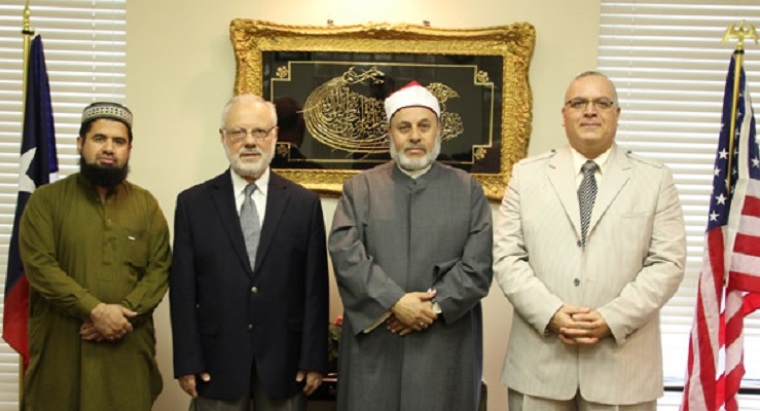Sharia law coming to Texas

DALLAS (Christian Examiner) – A website belonging to the "Islamic Tribunal" has announced establishing itself as an "institution" for settling matters among American Muslims according to sharia law, a legal system based on Islam. Moreover, the nonprofit is pushing "to set a precendence [sic] that will be emulated and duplicated" throughout the United States.
The organization claims to have "experienced judges ready to fight for you" on matters such as family law, divorce, product liability, business and real estate, based on "our common belief and creed" found in the Quran that states "hold fast, all together, by the rope which Allah (stretches out for you), and be not divided among yourselves."
Other religions offer mediation ministries and conflict resolution options.
But unlike the Islamic Tribunal, groups like Peacemaker Ministries, which helps congregations and individuals work toward reconciliation, are based on general religious principles and not a hard and fast code like sharia law.
Even the Ten Commandments of Christianity do not identify specific legal punishments for disobedience. In fact, the fifth, "honor thy father and thy mother," actually promises a reward of long life if obeyed.
The Islamic legal organization attempts to address this issue in part by suggesting any proceedings "must be conducted in accordance with the law of the land" and that mediation and arbitration could meet both the stipulations of sharia justice and "ethical and legal code that exists within this country."
Moreover, the group says its focus is only "transactional" law and not criminal law which could include "stoning adulterers, cutting of the hands, polyandry and the like (all can be traced in the relevant literature and can be explained in their Islamic legal mentality and rational context in fairness and justice)."
Despite the four judges' (which include three imams) assurances they will operate to show "non-Muslim communities that we are here in this country to spread peace and love," they present their case for even existing by speaking with some contempt for the U.S. legal system. They call it "costly" and consisting of "ineffective lawyers" and insist there can be no detachment "from the tenets of faith and all Islamic injunctions in regards to the legal field."
Although they say they simply want to assist Muslims in this country who are "discontent" with the local, state and federal legal system and so "postpone justice in this world and opt for an audience on the Day of Judgment," it is clear they hope to be much more of an influence, even "recognized" as a legal authority "by the courts."
"This may be incrementally developed by educating ourselves and also the legal professionals in the country, so understandably it may naturally take time to find its way to be commonly accepted..."